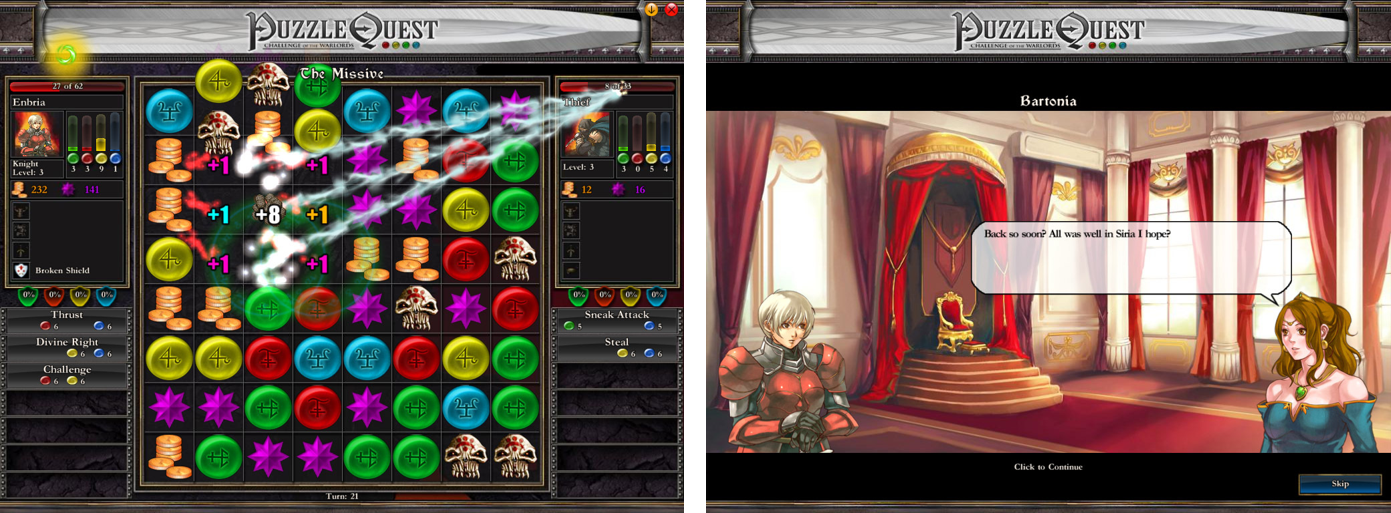As you may remember from the previous chapters, games are a medium for interaction and storytelling. When creating new playable content, you have a variety of tools and opportunities to tell your stories. As we have seen, these stories can emerge from both the overarching narrative and the gameplay experience.
Sometimes both stories will be tightly connected. In the detective game L.A Noire, most gameplay actions (such as gathering evidence, interviewing witnesses and so on) are not only motivated and supported by the narrative but also crucial for its development:

In other cases, gameplay and narrative can be independent entities. In Puzzle Quest: Challenge of the Warlords, the orb-matching puzzle gameplay could easily be swapped entirely without affecting the narrative; and on the flip side, the narrative itself does little to influence gameplay:

Puzzle Quest: Challenge of the Warlords offers a strange (and yet fitting) marriage of match-3 puzzle gameplay with...



